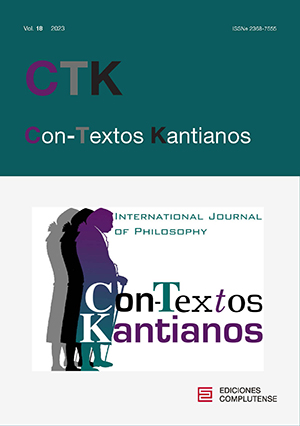Segundo Dossier especial en conmemoración del Tricentenario del nacimiento de Immanuel Kant
Temas y problemas de la edición y la traducción de los textos de Kant
Anunciamos la apertura de recepción de artículos para el dossier especial que Con-Textos Kantianos publicará con motivo del tricentenario del nacimiento de Immanuel Kant y que llevará por título “Temas y problemas de la edición y la traducción de los textos de Kant”.










